In the aftermath of the stunning verdict in the Ferguson, MO case of police officer Darren Wilson and the unarmed black teenager Michael Brown whom he shot to death on August 9, millions of Americans have been galvanized to respond.
We are still at war in Afghanistan. Last week the Obama Administration quietly announced, to almost no media fanfare, that it was continuing that war, when it was supposed to be ending at the beginning of next year. President Obama is also sending more troops back into Iraq. This too was met with a shrug by Americans.
Revving up America’s two longest wars has not spurred a single protest march in this country, but the failure of a grand jury to indict Darren Wilson on even the charge of involuntary manslaughter has brought thousands into the streets, from Ferguson itself to New York, LA, San Francisco, Philadelphia, Boston and beyond. Record numbers of tweets have gone out over Twitter, which many consider responsible for drawing attention to the case of Michael Brown and subsequent events in Ferguson after his killing.
The breadth of the protests versus the crickets over Afghanistan and Iraq makes cleat that the real war America is fighting, the one that many of us feel threatened by, is the fight between marginalized communities and law enforcement. The real war for a huge swath of Americans and their allies is the war against a militarized police force that often sees status–race, ethnicity, class, sexual orientation, gender identity–before it sees human beings.
I don’t know if there is a #NotAllPoliceOfficers hash tag on Twitter to parallel the #NotAllMen hash tag, but the disclaimer here is the same one President Obama voiced when he spoke to the nation immediately after the Wilson verdict in an effort to subvert violence: Not all police are criminals or racists or misogynists or homophobes. Not all shoot first and ask questions later.
BUT.
But there is a tone in America in both big cities like mine and small towns like Ferguson that puts some people at risk for injury or death by cop just by virtue of who they are, not anything they have--or might have--done.
Since Michael Brown was shot to death in August, more than a dozen other teenagers have been shot to death by police. Half were black, half were white, none of the police have been charged. (https://www.thedailybeast.com/articles/2014/11/25/the-14-teens-killed-by-cops-since-michael-brown.html)
A series of black adults–male and female--have also been shot to death in that period. One of those people, John Crawford III, was shot and killed by police in an Ohio Wal-Mart just weeks after Michael Brown was killed. As with Brown’s killing, the officers involved in shooting Crawford to death were not indicted despite video surveillance footage of the shooting. (https://www.washingtonpost.com/news/post-nation/wp/2014/09/25/ohio-wal-mart-surveillance-video-shows-police-shooting-and-killing-john-crawford-iii/) ;
Yet more than perhaps any other killing of a young unarmed black man by police, the case of John Crawford III points out the chasm between marginalized groups and the police. Crawford was shot for allegedly brandishing a weapon in Wal-Mart, yet he was holding a BB gun sold in the store and this was during the same period that all over America white men were openly carrying rifles and other guns in stores like Wal-Mart and Target to make a statement about their Second Amendment rights.
The simple fact is, a black person with a gun in America is perceived as a criminal while a white person with a gun is perceived as standing for a cause. None of the white men walking through stores with guns in their hands was considered a threat. But Crawford was. And was killed by police because of it.
LGBT people have a long history of conflict with police as well, although most of those conflicts have resulted in harassment, arrest and occasional beatings, rather than outright killing. But that history cannot be ignored and there are many members of our community who are in more than one marginalized group, notably LGBT people of color.
This is an issue for our community because police harassment of LGBT people is decades old. It was the foundation for the Stonewall Rebellion that spawned our modern LGBT rights movement and it continues to arise when LGBT people are victims of crime. Are our cases treated with the same concern and attention as those of straight Americans, or is there a tacit belief that we are somehow complicit in the violence that is often perpetrated against us?
A reality that marginalized people live with in America is that we are treated with suspicion, fear and demonizing. All LGBT people are viewed as somehow bringing crime on themselves and/or being closet criminals. It’s always a very quick step, for example, between talking about gay men and talking about pedophilia for many straight people, yet the overwhelming majority of pedophiles are heterosexual.
Many major cities, my own especially, have a long history of problems between police and the black and gay communities. Those conflicts have led to a plethora of payouts by Philadelphia, New York, Chicago, Los Angeles and other cities by the local governments for complaints about police abuse. Those payouts have totaled in the billions over the past five years alone.
What is being done about this?
There is no question that police have a difficult job and put their lives on the line for citizens every day. But that fact makes it even more imperative that police who step outside or over the lines be held accountable.
Shooting unarmed civilians is wildly stepping over the lines of civilized behavior in a democracy. We have a Constitution. We have due process. We have the rule of law. Did Darren Wilson follow any of those? If you read the transcript from the Grand Jury, the answer is a pretty resounding ‘no.’
What those who view this story as “over” fail to understand is that it’s not over. It’s not over and protests are continuing and Department of Justice investigations are continuing, not because Michael Brown’s grieving parents are distraught at what they see as a subversion of justice for their son, but because more than half of America sees that a system that lets Darren Wilson and the police who shot John Crawford walk without accountability is irretrievably broken.
When I was a senior in college, I became the inadvertent star witness in Philadelphia’s first major police brutality trial. My then-partner and my best friend were driving home on an April night in Philadelphia when we became the unwilling witnesses to a group of police officers beating a black man, William Cradle, who had been stopped for driving while black.
The trial was long and arduous. My partner’s and my lesbianism was on trial as much as anything else. We were harassed and threatened and lived in daily fear and it put a massive strain on our relationship. And the sole reason the case had even come to trial was because I had called the police on the police, because I was so shaken and traumatized and horrified by what I had experienced (I had actually gotten out of my car and tried to stop one of the officers and nearly gotten beaten myself for doing so). I had to find a path to justice.
I forged my own path to that justice, but although there was a trial and we were on TV every night and in the newspapers and all of that, William Cradle did not get justice. The case became about a black man who police thought might have been a criminal (he wasn’t–he was just going to pick up his wife from her job and had accidentally run a stop sign that was hidden by a tree branch) and three white lesbians who must have had a beef with police because they were criminals themselves because lesbianism was still a crime in the years post-Stonewall.
The verdict in the trial came down the day before Thanksgiving more than 30 years ago. I cried, I raged, I called William Cradle to apologize. I wrote my first opinion piece for the daily newspaper I would later work for.
That case changed my life in different ways than it changed William Cradle’s. It sent me fleeing into the domestic Peace Corps and working in every way imaginable to fix a system I knew then, at 19, was utterly broken. It turned me into an advocacy journalist. It made me realize in ways I had never fully understood before just how wide the gap between those of us who are marginalized and those who are not is in America.
That case othered me, my partner and my best friend and nearly broke our bonds with each other. It was meant to turn us against black men–the police came to our apartment and asked me (5'9" in flats) “What if he’d raped your girlfriend here?” and pointed to my petite 5'2" partner. I had said, “I’d want him prosecuted in a court of law.”
Except William Cradle was a victim, not a perpetrator. His only crime was missing a hidden stop sign and of course, driving while black. The failure of us–me and my partner and my friend–to secure justice for him turned us into disbelieved criminals as well. But we were there. There were no cell phone videos to take, but we went back to the scene and retrieved his broken glasses and bloodied shoes and pieces of broken nightstick and I turned them over the District Attorney’s office and being called “some kind of self-appointed lezzie Nancy Drew” by the mayor and former police commissioner of the city didn’t shame me, it made me proud.
But our work, our putting our own lives on the line, did not secure justice for William Cradle because, as I wrote for the Philadelphia Inquirer so many Thanksgivings ago, the all-white jury could not imagine a world in which a black man was innocent and white cops were guilty and three young lesbians could be telling the truth.
Watching the same process play out now with the criminalizing of Michael Brown and John Crawford and Eric Garner and 12-year-old boys in parks is just breaking my heart all over again because there is still no justice for our marginalized communities who are marginalized solely by this system that others us and points a finger and waits for us to maybe do something wrong like run a stop sign or shoplift some cheap cigars or pick up a toy gun and point it or just be black or gay or not a white man in America.
If we can’t see William Cradle as our uncle or cousin or Michael Brown as our brother or son or a 12-year-old with a toy gun in a park as playing a game most of us played as kids, then we are breaking this country in two, we are creating schisms and hatreds and demarcations that people like Martin Luther King and Rosa Parks and everyone who was at Stonewall or who was ever shoved in a van by police when a gay bar was raided have worked hard and even given their lives to erode.
Where, to paraphrase Dr. King, is the content of our collective character as a nation?
It has to be on the side of knowing what is right and what is wrong. What happened in Ferguson was wrong. What happened in Ohio was wrong. What happened to William Cradle all those years ago was wrong.
The fact is, as long as we pretend this doesn’t involve us, we are complicit in perpetuating it. And so we must protest. We must chant “hands up, don’t shoot,” we must hold the police accountable and we must work to make sure that black lives matter as much as white lives, LGBT lives matter as much as straight ones, that there is not, cannot be any more othering because are all Americans. Except some of us are still not fully free.
Victoria A. Brownworth is an award-winning journalist, editor and writer and the author and editor of nearly 30 books. She has won the NLGJA and the Society of Professional Journalists awards, the Lambda Literary Award and has been nominated for the Pulitzer Prize. She won the 2013 SPJ Award for Enterprise Reporting in May 2014. She is a regular contributor to The Advocate and SheWired, a blogger for Huffington Post and a contributing editor for Curve magazine and Lambda Literary Review. Her reporting and commentary has appeared in the New York Times, Village Voice, Los Angeles Times, Boston Globe and Philadelphia Inquirer. Her book, From Where We Sit: Black Writers Write Black Youth won the 2012 Moonbeam Award for cultural & historical fiction. Her novels, Ordinary Mayhem and Cutting will both be published in winter 2014. @VABVOX


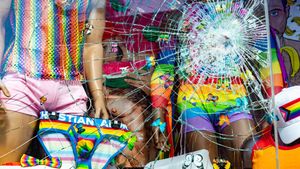

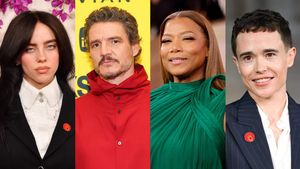

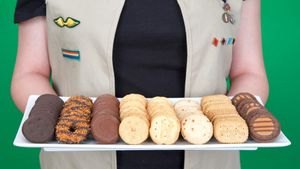



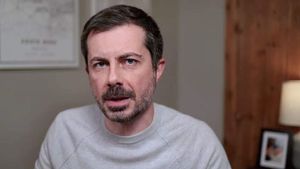


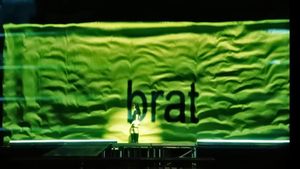

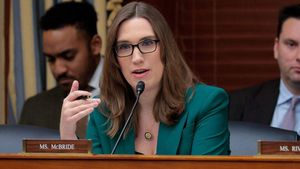
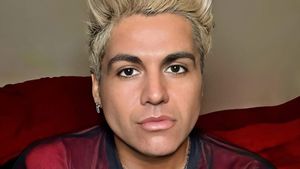
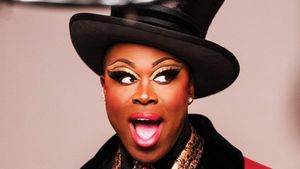

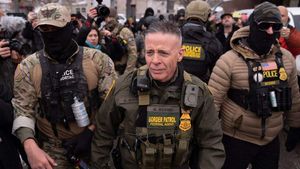





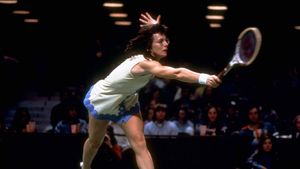



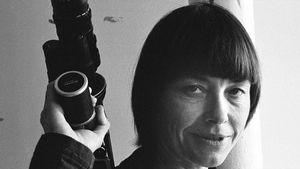


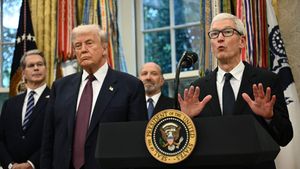


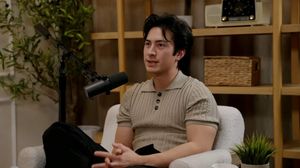

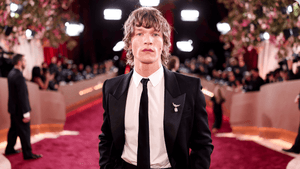
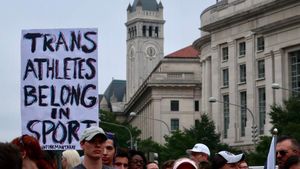
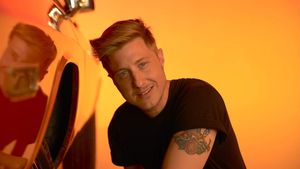
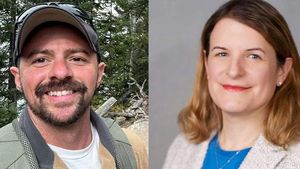



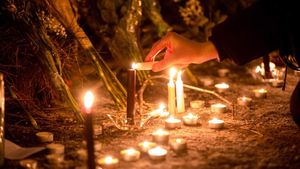

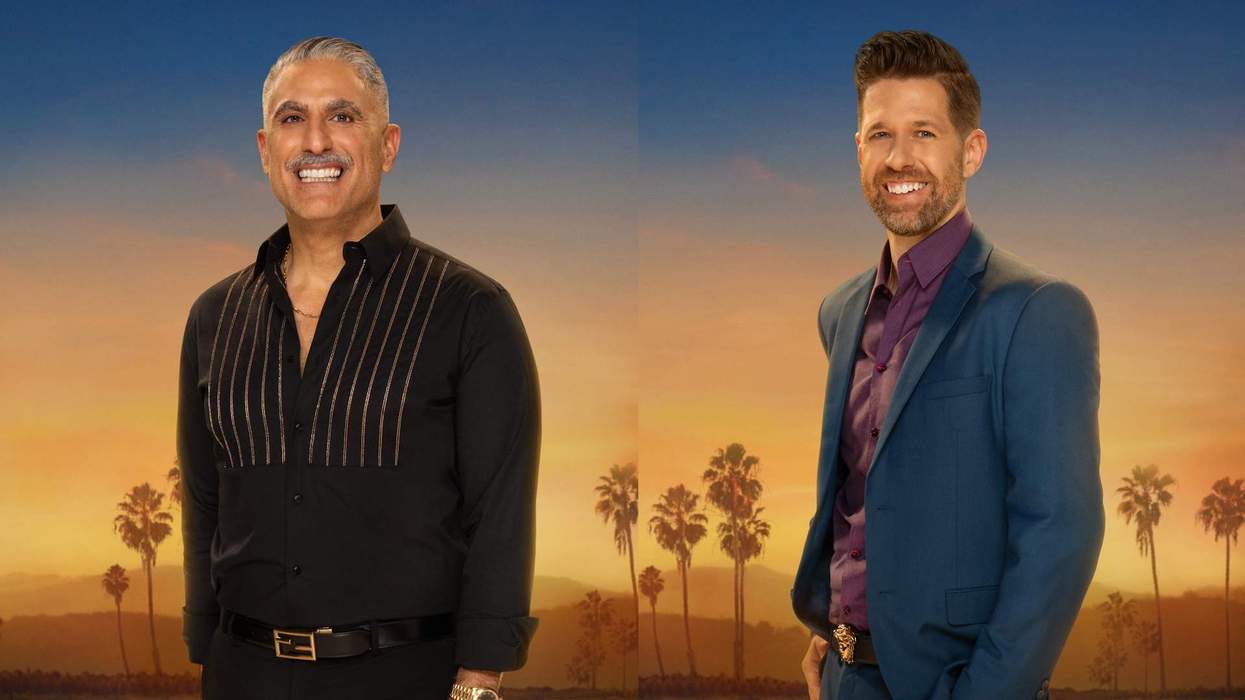
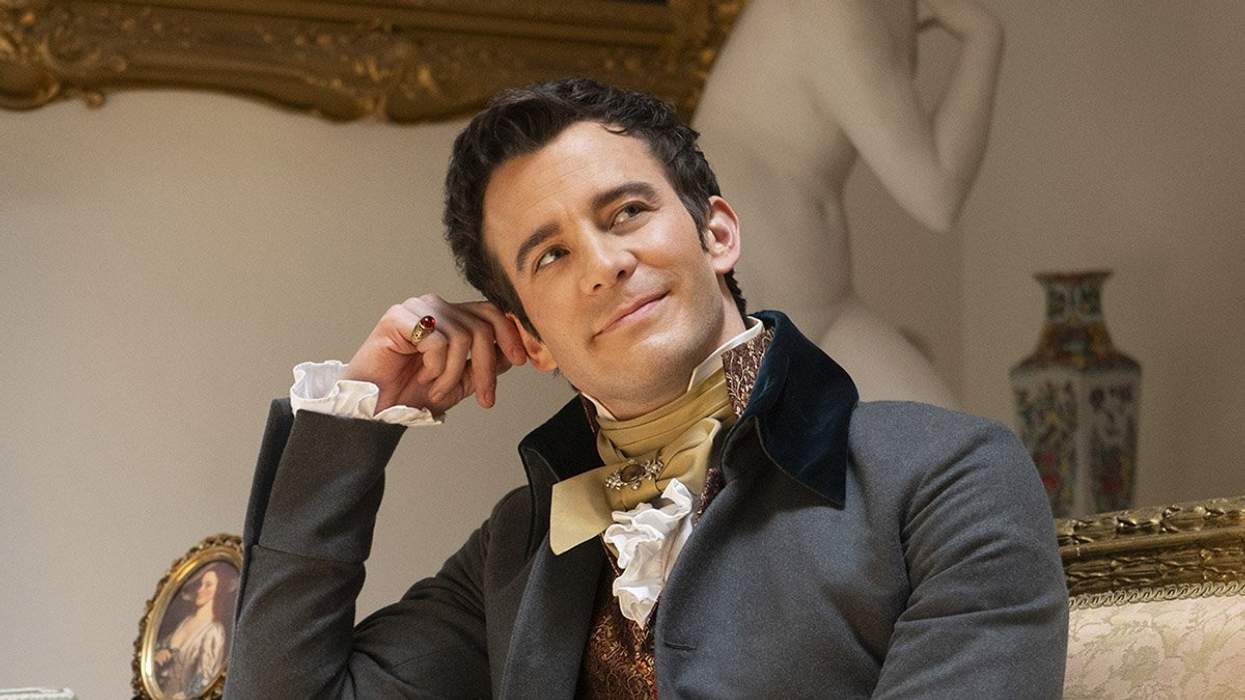
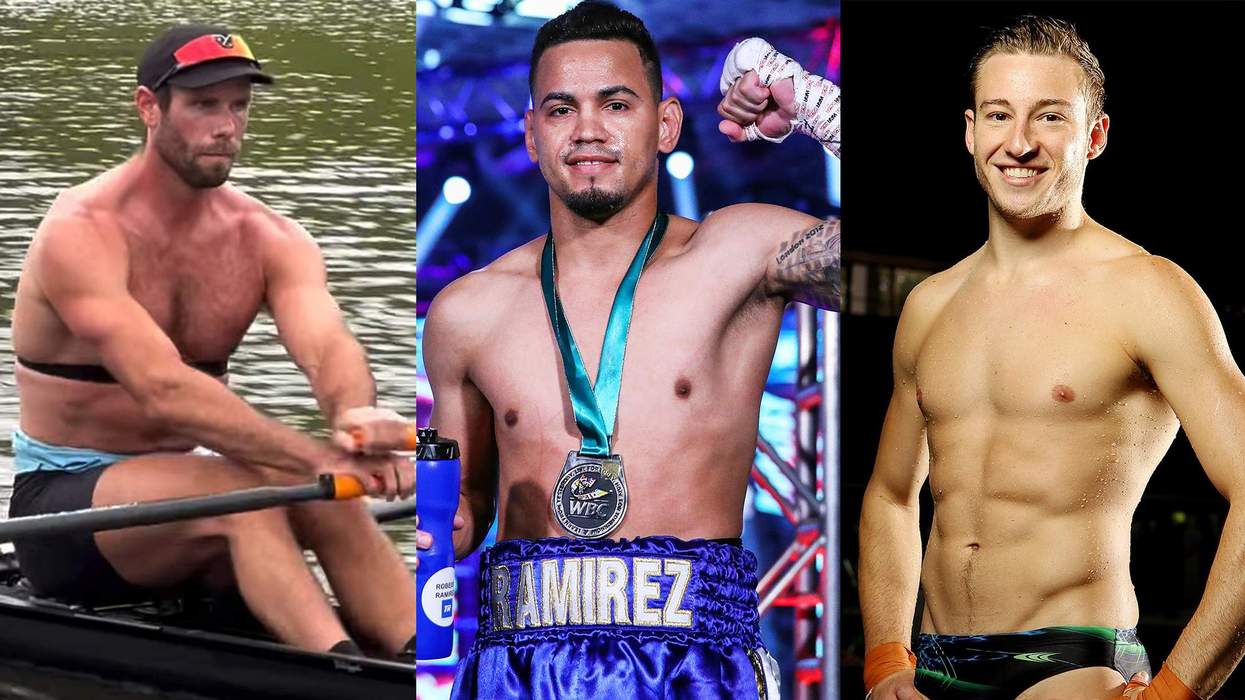
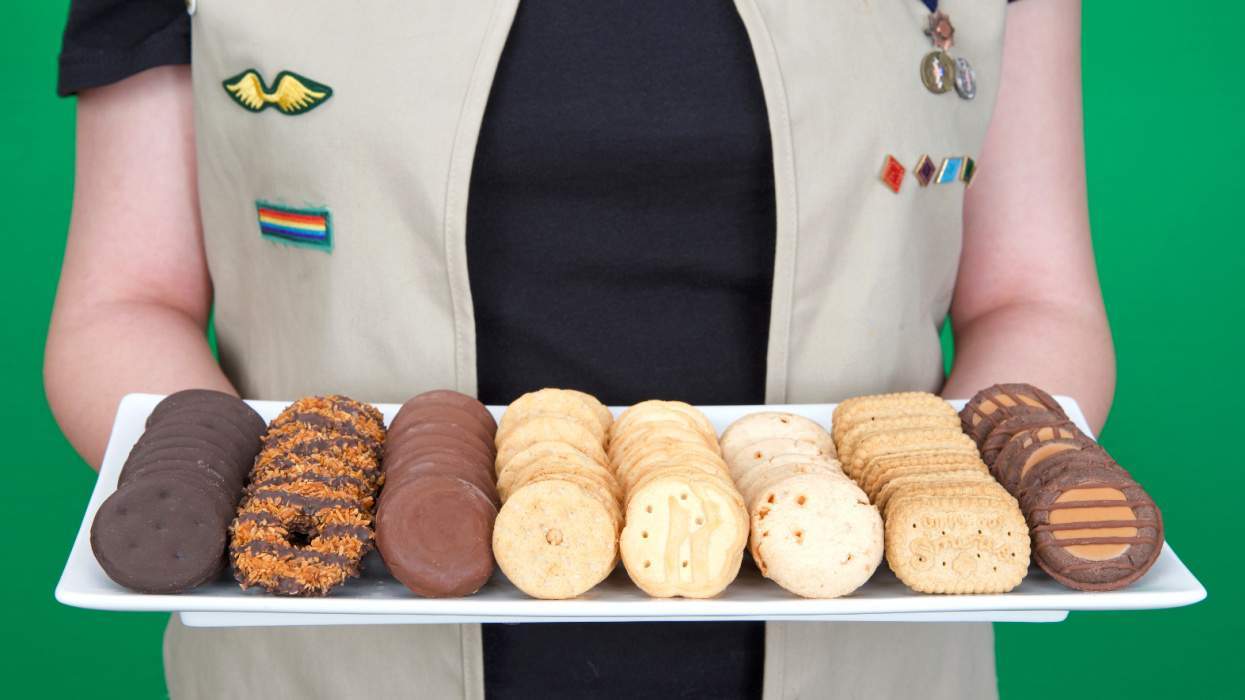





































 Cindy Ord/Getty Images
Cindy Ord/Getty Images























